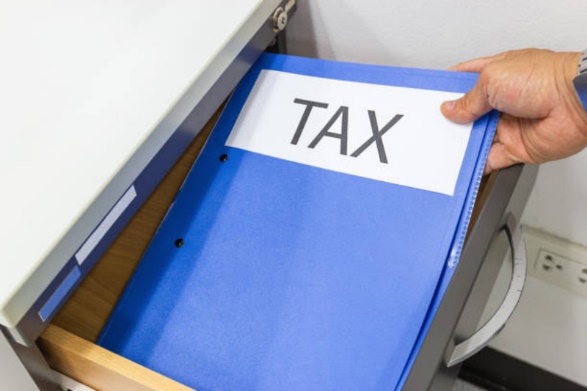Understanding your tax history is crucial for both personal and business financial planning. While tax returns can seem like a mundane part of the financial landscape, they're far from it. These documents contain a wealth of information, from income verification to a snapshot of your financial health during a particular year. However, accessing past tax returns is not always straightforward. This guide aims to demystify the process, offering step-by-step instructions on how you can obtain copies of your past tax returns. Whether you need this information for loan applications, to prepare for future tax seasons, or to resolve potential issues with the IRS, this guide is designed to assist you in navigating through the process efficiently.
What is a Tax Return?

A tax return is a document that individuals and businesses file with the government to report their income, deductions, and taxes paid for a specific year. The process of filing tax returns is crucial for the government to collect taxes from its citizens accurately. On the flip side, taxpayers use these documents as proof of income when applying for loans or financial aid, among other purposes. Tax returns can also serve as a reference for future tax planning and preparation.
Why It's Important to Keep Copies of Past Tax Returns
Keeping copies of past tax returns is essential for various reasons, including:
- Income Verification: Lenders often require income verification when you apply for loans or mortgages. Your past tax returns provide an accurate record of your income, which is crucial for loan approvals.
- Tax Planning: By reviewing your past tax returns, you can identify areas where you may have overlooked deductions or made errors. This information can help you plan better for future tax seasons and potentially save on taxes.
- Proof of Filing: In case of an audit or dispute with the IRS, having copies of past tax returns is crucial. These documents serve as proof that you have filed your taxes and can help resolve issues quickly.
- Financial Planning: Your past tax returns can provide valuable information about your financial health over the years. By reviewing these documents, you can identify trends in your income, expenses, and investments, which can help inform your future financial decisions.
Steps to Access Past Tax Returns
Now that you understand the importance of keeping copies of your past tax returns, let's look at the steps involved in accessing them.
- Request from Your Tax Preparer: If you use a professional tax preparer to file your taxes, they should have copies of your past tax returns. Contact them and request a copy.
- Contact the IRS: The IRS keeps copies of tax returns for up to six years. You can request a copy by filling out Form 4506 and paying a fee of $50 per return.
- Use Online Services: If you filed your taxes using popular software like TurboTax or H&R Block, you may be able to access your past tax returns through their online platforms.
- Get Your Tax Return Transcript: The IRS offers a free tax return transcript that includes most of the information from your past tax returns. You can request it online or by mail.
- Order Copies from the IRS: If you need an exact copy of your past tax returns, you can order them directly from the IRS by filling out Form 4506 and paying a fee of $50 per return.
Requesting Past Tax Returns by Mail
If you choose to request copies of your past tax returns by mail, follow these steps:
- Download and fill out Form 4506.
- Mail the completed form along with a check or money order for the appropriate fee made payable to the "United States Treasury."
- Allow up to 75 days for processing.
- Once your request is processed, you will receive a physical copy of your past tax return.
Tips for Accessing and Storing Past Tax Returns
- Keep digital copies of your past tax returns in a secure location, such as a password-protected folder or encrypted hard drive.
- Consider using cloud storage services to backup your tax documents and ensure easy access from anywhere.
- If storing physical copies, keep them in a safe and secure location.
- Review your past tax returns regularly and make note of any discrepancies or mistakes that need to be corrected.
Seeking Help from a Tax Professional

If you have difficulty accessing your past tax returns or need assistance with reviewing them, consider seeking help from a tax professional. They can guide you through the process and offer valuable insights into your financial history. Additionally, they can also assist you with resolving any issues that may arise with the IRS.
Conclusion
Accessing past tax returns is essential for various financial reasons, and this guide has provided you with the necessary information to retrieve them efficiently. By understanding the importance of keeping copies of your past tax returns and following the steps outlined in this guide, you can access and store these critical documents securely. Remember that seeking help from a tax professional is always an option if you encounter any difficulties or have questions about your tax history. So, take the necessary steps to obtain and review your past tax returns regularly, and use them to make informed financial decisions for your future.




